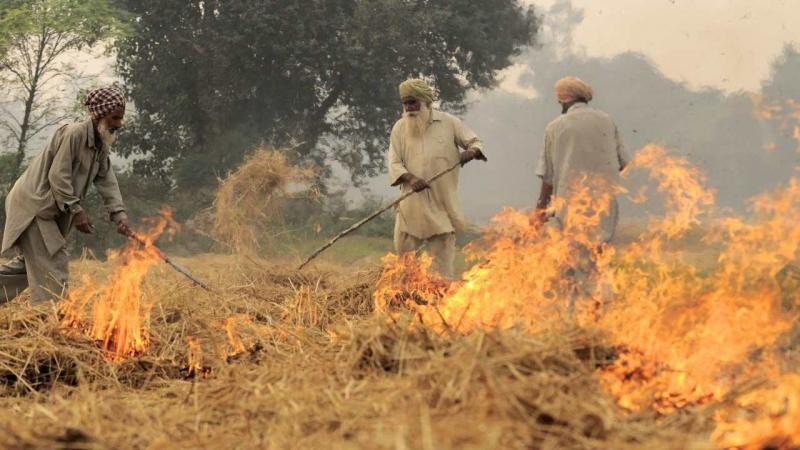New Delhi: Observing that the worsening air quality is causing fatal diseases to people in Delhi-NCR, the National Green Tribunal (NGT) has asked Uttar Pradesh, Haryana and Punjab to depute a person each to report daily on air pollution due to stubble burning.
Taking note of a news report in an English daily, that said crop burning shoots up carbon dioxide levels in the air by 70 per cent, the NGT asked the governments of the three states to sensitise farmers on pollution caused by burning of crop residue. The NGT also expressed concern Tuesday that equipment is yet not made available to farmers.
The Centre’s counsel told the NGT bench, headed by its chairperson Justice Adarsh Kumar Goel, the Union Government has disbursed Rs 600 crore which was being paid to farmers to purchase equipment. However, in case additional funds are needed it will have to borne by the states.
“The fact remains that there is adverse impact of burning of such residue on air quality causing air pollution-related diseases which at times may be fatal,” the bench observed.
“Every year in October-November, problem of air pollution is acute in and around Delhi, threatening the health of infants and senior citizens,” it added.
The NGT bench stated that 25-30 per cent air pollution in Delhi-NCR is caused by stubble burning in October and November every year.
The Punjab government told the bench that it has set up a special cell in the Office of the Chief Secretary to review the number of paddy straw burning incidents on daily basis.
“Similarly, District Magistrates have been directed to set up similar special cells. The same has been placed on the website of Punjab government and other websites. In addition to this, the state government has nominated one senior IAS officer for each district to monitor the management efforts by various agencies and oversee stubble burning incidents,” the counsel representing Punjab said.
The NGT had ordered constitution of special cells in the office of the Delhi Chief Secretary and neighbouring states to monitor daily the air pollution caused by burning of crop residue. Similar cells may be required at the offices of District Magistrates or at such other levels as may be considered necessary by the state authorities, the bench stated.
PTI
